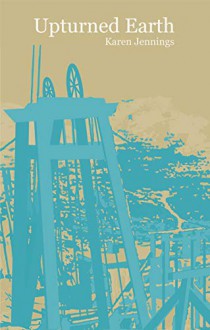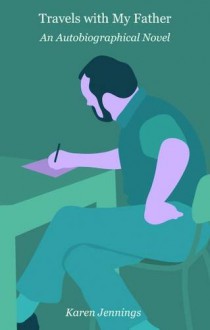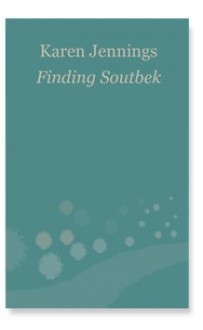
Thanks to Bernadette, from Holland Park Press, for providing me an ARC copy of this novel, which I freely chose to review.
I’m sorry it took me so long to get to read this novel, because it’s a must-read. Perhaps it’s because I’ve lived in old mining communities in the UK, but I’ve always been interested in the mining industry, or rather, in the conditions of the workers throughout history, but I am no scholar and have no knowledge of the South African mining communities. Let me tell you that this book was an eye-opener. Although in her notes the author explains that the specific events represented in the book are fictional, she notes that the towns and the mining companies (in this case copper mines) existed, and that she got her inspiration for one of the main characters in the novel, magistrate Hull, from magistrate William Charles Scully (a famous South African author and pioneer), and some of the most horrific details in the novel are true. And although the novel is historical fiction, some of the events are reminiscent of much more recent events (like the Marikana Massacre in 2012).
I had never read any books by Karen Jennings before, although she’s received awards, and she has a number of publications: novels, short-stories, and poetry books, to her name. I look forward to reading more of her works in the future.
The plot follows two characters that are as different as they could be: one an educated white man, newly arrived to take a position of authority and responsibility (or so he thinks), Magistrate Hull; and the other, Noki, a Xhosa mining labourer, who can only find work far away from home and in inhuman conditions, and who has no illusions about the way things really are. The two men meet and get to collaborate in horrific circumstances, and life for either of them can never be the same again. The action is set in 1886, and the author manages to recreate the atmosphere of the place and the era very effectively without spending too much time in long-drawn descriptions, although due to Hull’s interest in the natural world, we get to hear about the flora and the fauna of the area. We also witness rituals and customs of the place, which greatly aid in familiarising readers with the historical period and the setting.
The book sets up well the social order, with the wealthy whites (especially those well-to-do, like the supervisor of the mine, or professionals like the doctor) at the very top, and the natives working at the mines at the very bottom. The power of the mining companies over the lives (and deaths) of their employees and of the whole town becomes evident as we read the book, and behind the veneer of civilisation and good manners, hide very dark secrets. Corruption is rampant, and nothing is allowed to get in the way of the business at hand. The novel shows the harsh lives of the natives (who must find work elsewhere as they cannot live of the land) and contrasts it to that of Hull, who does not have to lift a finger (he literally doesn’t even have to bathe himself, as somebody does it for him). Although he changes during the novel, it illustrates how such situations could have taken place, and the complacency and willingness of the population to look the other way.
Hull does not start as a particularly likeable character. He is an inefficient worker, sent to the Cape region because nobody else would go, and he is weak-willed and doesn’t question the status quo. He is like a child (there is a fantastic scene where he and a young boy end up all dirty after trying to dig for frogs in the soil, and all this is taking place while the mine has collapsed and there is a rescue operation going on), and he is only shocked into action when he is confronted with the truth head-on. He is not an evil man, though, only indolent, self-centred and accommodating, and he has a heart (and falls in love with a woman many wouldn’t look at), but he eventually does the right thing and becomes something of a crusader, even though neither side seems to understand or appreciate what he is trying to do. I grew to like Hull, despite his faults and weaknesses, and the author creates a realistic portrayal of a man who is no hero but in the end decides to do the right thing. Noki is a man who lives day to day, who loves his family and his friends, and who simply wants to be able to make a living as a farmer in his village, but that is not possible. He ends up in an impossible situation and does his best to protect himself and others. Although one hopes things work out well for him, the ending only suggests more of the same to come. There are many other characters, some more memorable than others, some chilling and terrifying, and some, like Mrs McBride, trapped in circumstances beyond their control, who have little option but to cope with the situation as best they can.
The novel is told in the third person from the alternating points of view of Noki and Hull, but I must warn readers that there are pretty harsh and explicit scenes of violence, sickness, and true horror in the book. This is a short novel, but it does not pack any punches, and after initial scenes of apparent calm and quiet (although warning signs clearly on display), things deteriorate quickly, and we get to see what’s hiding behind the appearances. The pace of the novel is not frantic, and there are contemplative moments, mixed with some frenzied action scenes towards the end. Jennings’ background as a poet becomes evident in many passages of the novel. Here, for example, she is talking about a miner who is very ill but determined to go to work; otherwise they’ll take somebody else in his place:
His face hardened against the pain. He seemed another being then. Ceased to be a man, became instead a moving shape of rock and metal, as though the very ground had risen up around him and was now propelling him forward in the direction of the mine.
Another sample of the writing:
What sort of life is it living underground so that we can be paid less than nothing, where we beg to be allowed to come home once-twice a year to see our family? Never sleeping enough, never eating enough, fighting over the torn shirt that a white man has thrown away.
In sum, this is a novel about important subjects (the past (and not so past) history of the mining industry in South Africa, social justice, corruption, beautifully written but horrifying at the same time. I recommend it to people interested in discovering new voices, in stories about unusual subject, especially those set in South Africa, and, in general to anybody eager to read an interesting, but harsh, and well-written historical novel.

 Log in with Facebook
Log in with Facebook 








